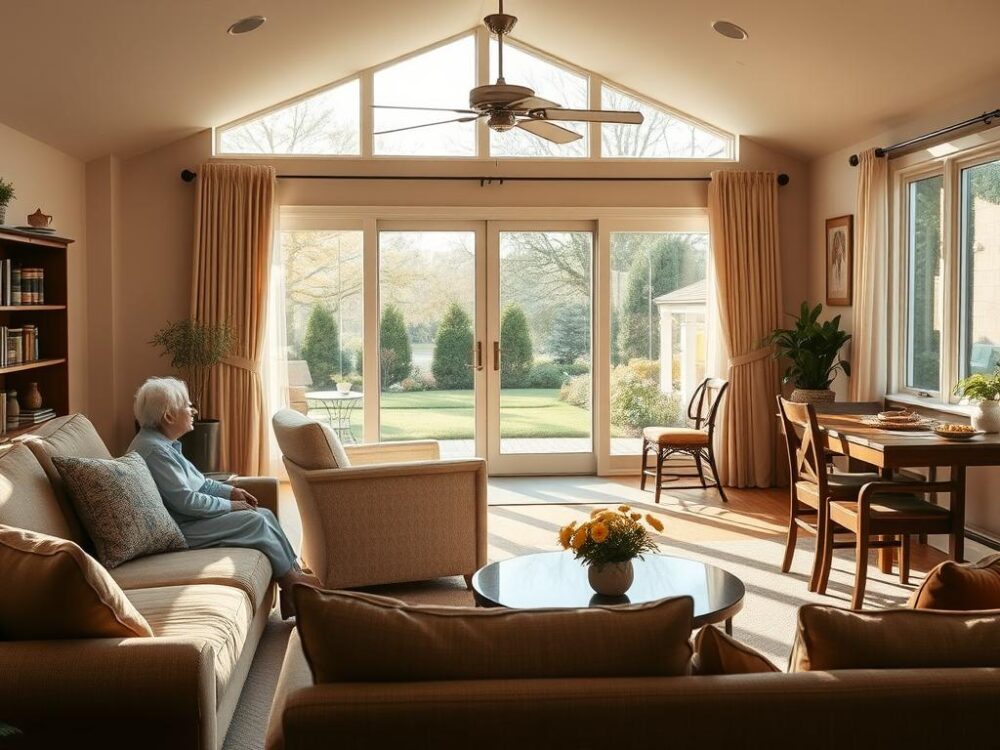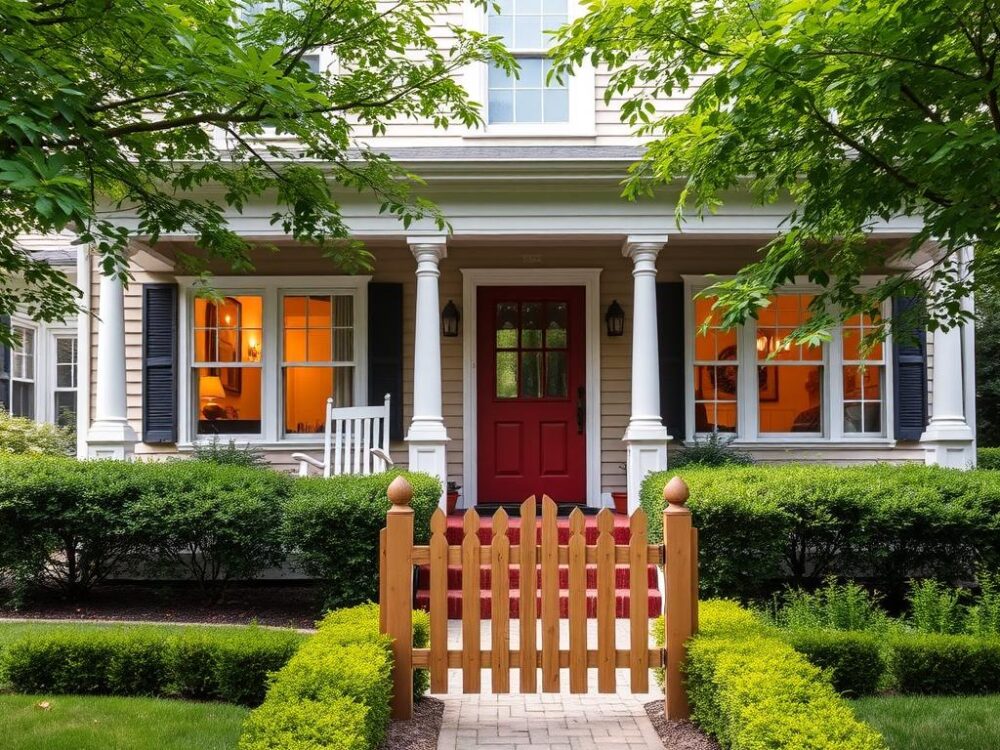
Find Top Care Facilities Near Me | Quick Search
March 5, 2024
Find Care Homes Near Me | Senior Living Support
March 5, 2024When searching for a care home for your loved ones, it is important to prioritize finding a quality facility that provides compassionate and high-quality living. To ensure you make an informed decision, it is essential to explore top-rated care homes in your area. This article will guide you in finding the best care homes that meet your loved one’s needs and help you secure compassionate and high-quality living for them.
Understanding the Different Types of Senior Care Options.
Before embarking on your search for care homes, it is crucial to have a clear understanding of the various senior care options available. By familiarizing yourself with these options, you can make an informed decision that best suits the needs of your loved one.
Assisted Living
Assisted living facilities provide a similar level of care as care homes but in a larger community setting. They offer a combination of housing, personalized support, and healthcare services to help seniors maintain their independence while receiving assistance with daily activities such as bathing, dressing, and medication management.
Independent Living
Independent living communities are well-suited for seniors who can manage their daily needs independently but still desire a supportive and socially active environment. These communities offer private residences, often in the form of apartments or cottages, and a range of amenities and social activities to enhance quality of life.
Memory Care
Memory care is a specialized form of care for individuals with Alzheimer’s disease, dementia, or other memory-related conditions. These facilities offer a safe and secure environment specifically designed to meet the unique needs of residents, providing specialized cognitive stimulation, assistance with daily tasks, and personalized care.
In-Home Care
In-home care provides assistance and support to seniors who wish to age in the comfort of their own homes. These services can include help with daily activities, medication reminders, meal preparation, companionship, and transportation. In-home care allows seniors to maintain their independence while receiving the necessary support to ensure their well-being.
Nursing Homes
Nursing homes, also known as skilled nursing facilities, offer round-the-clock medical care and supervision for individuals with long-term health conditions or who require extensive assistance with daily activities. These facilities have trained healthcare professionals on staff to provide comprehensive care, including medical treatments, rehabilitation services, and personalized assistance with daily needs.
Understanding the differences between these senior care options is vital in determining which one aligns best with the unique needs and preferences of your loved one. By considering the level of care required, the specific services offered, and the overall environment provided by each option, you can make an informed decision that ensures the well-being and quality of life for your loved one.
Next, we’ll discuss when a care home may be the right choice for your loved one.
When Is a Care Home the Right Choice for Your Loved One?
- Difficulties with home maintenance and routine tasks
- Diminishing mobility and stability
- Changes in behavior
- Declining memory and cognitive skills
- The inability to provide the level of care needed
Considering these factors will help you determine if a care home is the appropriate solution for your loved one’s well-being and safety.
Assessing Care Needs
Before deciding on a care home, it is important to assess your loved one’s care needs thoroughly. Consider their physical, emotional, and cognitive condition, as well as any specific medical requirements they may have. An evaluation by a healthcare professional can provide valuable insights and guidance in determining the level of care required.
What Services Are Provided in Care Homes?
Care homes offer a wide range of services to cater to the needs of their residents. These services are designed to ensure the well-being and comfort of the individuals under their care. While specific services may vary between care homes, the overarching goal is to provide comprehensive care and support. Here are some of the key services typically offered in care homes:
- 24-hour support and supervision: Care homes provide round-the-clock assistance and monitoring to ensure the safety and security of residents.
- Assistance with activities of daily living (ADLs): Care home staff help residents with tasks such as bathing, dressing, grooming, and mobility, enabling them to maintain their independence.
- Medication management: Trained healthcare professionals in care homes help residents manage their medications, ensuring that they receive the right dosage at the right time.
- Meals: Care homes typically offer nutritious meals and snacks, accommodating dietary restrictions and preferences.
- Housekeeping services: Residents can expect assistance with housekeeping tasks such as laundry, cleaning, and maintenance to ensure a clean and comfortable living environment.
- Transportation: Care home staff may provide transportation services for residents to attend medical appointments, social activities, and outings.
- Recreational programs: Care homes offer various activities and programs to promote social engagement, mental stimulation, and physical well-being among residents.

These services are designed to meet the unique needs of each resident and ensure their holistic care. It is important to note that the specific services available may vary depending on the care home and the level of care required. When exploring care homes, it is essential to inquire about the services provided to ensure they align with the needs and preferences of your loved one.
Factors to Consider When Choosing a Care Home.
Choosing the right care home for your loved one involves considering several important factors. These factors play a significant role in ensuring their safety, well-being, and overall quality of life. When embarking on this journey, keep the following factors in mind:
Location
Staff
The staff members at a care home are the caregivers who will be directly responsible for your loved one’s daily care and well-being. Evaluate the level of expertise, qualifications, and training of the staff. Additionally, consider the turnover rate within the care home as a high turnover rate can disrupt continuity of care. Opt for a care home with a dedicated and experienced staff that can provide compassionate and personalized care.
Size and Atmosphere
The size and atmosphere of a care home can greatly impact your loved one’s experience. Some individuals may prefer a smaller, cozy environment, while others may thrive in a larger, more vibrant community. Consider your loved one’s personality and preferences when evaluating the size and atmosphere of the care home to ensure they feel comfortable and at home in their new living environment.
Reputation
Researching and gathering information on the care home’s reputation and reviews is essential in making an informed decision. Look for reliable sources such as online review platforms and testimonials from current and past residents and their families. This will provide valuable insights into the quality of care and overall satisfaction levels within the care home.
These factors are crucial in guiding your decision-making process when choosing a care home for your loved one. By carefully considering these factors, you can find a care home that meets their individual needs and ensures their overall well-being and comfort.
Researching Care Homes Online.
When it comes to finding and evaluating care homes, online research is an invaluable tool. By leveraging online resources, you can gather relevant information, ratings, and reviews that will aid you in making an informed decision for your loved one’s well-being.
One notable website that provides comprehensive information about care homes is Medicare’s Care Compare. This platform offers details about nursing homes that receive Medicaid and Medicare funding, enabling you to assess the quality of care provided. Additionally, Seniors Blue Book is another resource that offers insights into care homes, including ratings and reviews.
To gain further insights and recommendations, consider reaching out to your personal network. Seek recommendations from trusted sources such as family, friends, healthcare professionals, and local ombudsmen. These individuals can provide firsthand experiences and valuable perspectives on the quality of care homes in your area.
By conducting thorough online research, gathering information from reputable sources, and analyzing your findings, you can narrow down your options and make an informed decision. Remember that the ultimate goal is to find a care home that prioritizes the well-being and comfort of your loved one.
Researching Care Homes Online: Key Points
- Utilize resources such as Medicare’s Care Compare and Seniors Blue Book for comprehensive information on care homes.
- Tap into personal networks and seek recommendations from trusted sources.
- Analyze your findings to narrow down your options and make an informed decision.
Visiting Care Homes in Person.
Visiting care homes in person is an essential step in the decision-making process. While some care homes may allow scheduled tours, it is recommended to make unannounced visits to get a genuine feel for the facility.
During these visits, pay attention to the cleanliness of the facility, observe the interaction between staff and residents, and assess the overall atmosphere and environment. Considerations such as the smell, vibe, food quality, staff demeanor, and available amenities should be evaluated. By immersing yourself in the physical environment of the care home, you can better assess if it aligns with your loved one’s needs and preferences.

Important Considerations for Choosing a Care Home.
When it comes to choosing a care home for your loved one, there are several important considerations that should guide your decision-making process. These considerations will help ensure that the care home you choose provides the necessary care and support while aligning with your loved one’s desires and maintaining close connections with family and friends.
- Location: The location of the care home is an important factor to consider. Ideally, you would want to choose a care home that is conveniently located, allowing for easy visits from family and friends. Proximity to familiar places, such as the neighborhood where your loved one has lived, may also contribute to their comfort and sense of familiarity.
- Staffing and Employee Turnover: The level of staffing and employee turnover in a care home can significantly impact the quality of care provided. It is essential to inquire about the staff-to-resident ratio, the qualifications and experience of the staff members, as well as the stability of the care home’s workforce. A low turnover rate suggests that the care home values its employees, fostering continuity of care and a nurturing environment for residents.
- Size and Atmosphere: Consider the size and atmosphere of the care home. Some individuals may prefer a smaller, more intimate setting, while others may thrive in a larger community. Take into account the preferences and needs of your loved one and how they might be affected by the care home’s size and overall atmosphere. Pay attention to the layout, décor, and general ambiance to ensure it aligns with their preferred living environment.
- Personal Wishes and Preferences: Your loved one’s personal wishes and preferences should be given utmost consideration when choosing a care home. Involve them in the decision-making process, take note of their preferences regarding activities, amenities, and social opportunities, and find a care home that can accommodate their individual needs and desires.
Considering these important factors will help you make an informed decision and ensure that the chosen care home provides the necessary care, comfort, and support for your loved one. By keeping these considerations in mind, you can choose a care home that fosters a positive and nurturing environment, promoting your loved one’s overall well-being and quality of life.
The Benefits of Choosing a Quality Care Home.
Opting for a quality care home offers numerous benefits for your loved one’s well-being and quality of life. When you choose a care home that prioritizes quality, you provide your loved one with a safe and supportive environment where their needs are met and their independence is respected.
One of the primary benefits of a quality care home is access to 24-hour support and supervision. Your loved one will have round-the-clock assistance from trained professionals who are dedicated to ensuring their health, safety, and comfort. This constant availability of support provides both you and your loved one with peace of mind.
Personalized assistance with activities of daily living (ADLs) is another key advantage of a quality care home. From bathing and dressing to medication management, your loved one will receive tailored care that meets their unique needs. This individualized approach ensures that they maintain their dignity and independence while receiving the necessary assistance.
In a quality care home, nutritious meals are prepared and provided to residents. These meals are designed to meet their dietary requirements and preferences. Regular, balanced nutrition is essential for maintaining overall health and wellness, and being able to rely on the care home for nutritious meals alleviates the burden of meal planning and cooking for your loved one.
A quality care home also offers a safe and clean environment for your loved one. From well-maintained facilities to rigorous hygiene protocols, these homes prioritize cleanliness and safety to minimize the risk of accidents or infections. Knowing that your loved one is in a secure and hygienic environment provides you with peace of mind.
Engaging recreational programs are another benefit of choosing a quality care home. These programs are designed to stimulate your loved one physically, mentally, and socially. Socialization with peers promotes a sense of belonging and can help combat feelings of isolation or loneliness. Engaging activities and events contribute to a fulfilling and enjoyable lifestyle for your loved one.
By choosing a quality care home, you are ensuring that your loved one’s physical, emotional, and social needs are prioritized. The compassionate care and attention they receive contribute to their overall well-being and quality of life. You can have confidence that your loved one is in a nurturing environment where they can thrive and experience a sense of belonging.
Conclusion
Finding the right care home for your loved one is a crucial process that requires careful consideration and thorough research. By understanding the different types of senior care options, assessing your loved one’s unique needs, and considering important factors such as location, staff, and reputation, you can make an informed decision.
Researching care homes online and seeking recommendations from trusted sources like family, friends, and healthcare professionals can provide valuable insights into the quality of care homes in your area. However, it is equally important to visit care homes in person to assess their cleanliness, staff-resident interactions, and overall atmosphere.
Choosing a quality care home ensures your loved one’s well-being and comfort in a supportive and caring environment. With access to around-the-clock support, personalized assistance with daily activities, and engaging recreational programs, they can enjoy a high-quality and compassionate living experience. Prioritizing their needs and preferences while maintaining close connections with family and friends is essential in selecting the right care home.
FAQ
What should I consider when searching for a care home?
When searching for a care home, it is important to consider factors such as location, staff, size and atmosphere, and the overall reputation of the care home.
What are the different types of senior care options?
The different types of senior care options include assisted living, independent living, memory care, in-home care, and nursing homes.
How do I know if a care home is the right choice for my loved one?
Signs that indicate a care home may be the right choice include difficulties with home maintenance, declining mobility and stability, changes in behavior, and the inability to provide the necessary level of care.
What services are provided in care homes?
Care homes typically offer services such as 24-hour support and supervision, assistance with activities of daily living (ADLs), medication management, meals, housekeeping services, transportation, and recreational programs.
What factors should I consider when choosing a care home?
Some factors to consider when choosing a care home include location, staff, size and atmosphere, and the overall reputation of the care home.
How can I research care homes online?
You can research care homes online by visiting websites such as Medicare’s Care Compare and Seniors Blue Book, which provide information, ratings, and reviews.
Is it important to visit care homes in person?
Yes, it is important to visit care homes in person to assess factors such as cleanliness, staff interaction, atmosphere, and available amenities.
What other considerations should I take into account when choosing a care home?
Other considerations to take into account include the proximity to family and friends, the level of staffing and employee turnover, and the personal wishes and preferences of your loved one.
What are the benefits of choosing a quality care home?
The benefits of choosing a quality care home include access to 24-hour support and supervision, personalized assistance with ADLs, nutritious meals, and engaging recreational programs.
How can I make an informed decision when finding a care home?
To make an informed decision, it is important to understand different senior care options, assess your loved one’s needs, consider important factors, research online, visit care homes in person, and take various considerations into account.




